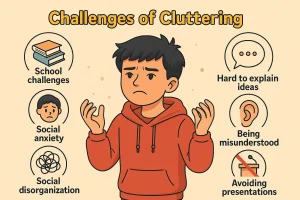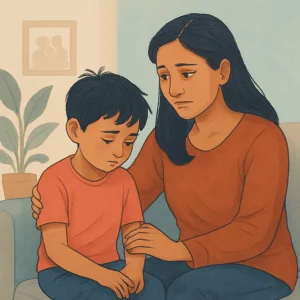10 Powerful Couples Therapy Tips to Rekindle Your Love
By Prapoorna M
Last Updated: March 22, 2024
In the quest for a fulfilling and enduring relationship, couples often encounter roadblocks that seem insurmountable. Whether it’s the daily grind wearing down the romance or deeper issues that have crept in unnoticed, every partnership faces its tests. This is where the transformative power of couples therapy comes into play, offering a beacon of hope for those looking to rekindle their connection.
You’re not alone if you’ve been searching for effective strategies to enhance your partnership. Many have turned to couples therapy as a tool to not only navigate through the challenges but also to unlock deeper levels of understanding and intimacy with their partner.
Couples therapy isn’t just about resolving conflicts; it’s about laying down the foundation for a relationship that thrives on mutual respect, understanding, and love. It’s a journey towards understanding one another better, communicating more effectively, and, most importantly, growing together as a unit. So, if you’re on the lookout for ways to strengthen your bond and ensure the longevity of your relationship, you’ve come to the right place.
Book Relationship Counselling Now
Let’s explore together how these 10 couples therapy tips can unlock new dimensions of love and partnership in your life.
1. Embrace Reflective Listening
One of the most transformative tools in couples therapy is reflective listening. This technique goes beyond the surface of communication, inviting partners to truly hear and understand each other’s thoughts and feelings without immediate judgment or rebuttal. The essence of reflective listening lies in mirroring back what your partner has said, ensuring that you’ve understood their message accurately and deeply.
Why is it important? Reflective listening bridges gaps in communication reduce misunderstandings and fosters a deeper emotional connection. It’s about validating your partner’s feelings, showing them that their thoughts are important to you, and building a foundation of trust and openness.
Examples of “I” statements:
- Instead of saying, “You’re always distracted,” try, “I feel like I’m not getting the attention I need.”
- Swap “You never listen to me” with “I feel unheard when we talk about my day.”
These shifts in communication invite a more compassionate and empathetic dialogue, laying the groundwork for a healthier, more understanding relationship.
2. Discover Emotion Focused Therapy (EFT)
Emotion Focused Therapy (EFT) is a powerful approach in couples therapy that focuses on emotions as the key to unlocking a deeper connection between partners. By understanding and addressing the emotional undercurrents of their interactions, couples can move from conflict and distance to security and closeness.
Benefits of EFT include:
- Enhanced emotional awareness and expression.
- A stronger sense of connection and attachment.
- Breaking through and transforming negative interaction patterns.
EFT helps couples understand not just the ‘what’ of their disputes but the ‘why’—the deep-seated needs and emotions that fuel their reactions and behaviors. This understanding fosters a deeper emotional connection as partners learn to respond to each other’s needs with empathy and support.
Simplifying EFT: Imagine you’re not just arguing about who forgot to take out the trash. Instead, you’re expressing underlying feelings of being overlooked or undervalued. EFT helps you communicate these fundamental emotional needs, ensuring that both partners feel seen, heard, and valued.
Learn more: How to Love Your Spouse Again? | How to Fall Back In Love With Your Partner?
3. Explore the Power of Narrative Therapy
Narrative therapy offers a unique lens through which couples can view their relationship, focusing on the stories they tell about their lives together. It’s based on the premise that our identities and experiences are shaped by the narratives we construct. When couples engage in narrative therapy, they’re encouraged to rewrite the stories that have led to conflict, creating new narratives that foster understanding and connection.
Rewriting Your Relationship Story: This approach helps couples see that their relationship is not defined by any single story or event. Instead, it’s a compilation of many stories, some of which may have been overshadowed by negative experiences. By identifying and reshaping these stories, partners can shift their perspectives, recognize each other’s value, and rediscover the reasons they came together.
4. Solution-focused Strategies
Solution-focused strategies in couples therapy concentrate on what couples want to achieve rather than dwelling on the problems. This approach is all about building solutions, setting specific, achievable goals, and identifying the steps required to reach them. It’s based on the understanding that focusing on problems can perpetuate them, whereas focusing on solutions propels couples forward.
Focusing on Solutions, Not Problems: The key here is to identify the times when the problem doesn’t occur, what’s different about those times, and how to create more of those problem-free moments. For instance, instead of fixating on the lack of communication, you’d explore moments when communication flowed well. What was different? How can you create more of those moments?
A solution-focused approach empowers couples to use their strengths to overcome challenges. It encourages a mindset shift from “We always argue about this” to “How can we communicate differently to avoid this argument?” This not only helps in resolving immediate issues but also equips couples with the tools to handle future challenges more effectively.
Explore more: Key Signs of a Broken Relationship
Common Relationship Challenges vs. Therapy Techniques
| Common Relationship Challenges | Therapy Techniques Addressing the Challenge |
|---|---|
| Communication Issues | Reflective Listening, Narrative Therapy |
| Lack of Intimacy | Emotion Focused Therapy (EFT), Intimacy-building Exercises |
| Conflicts About Finances | Solution-focused Strategies, Gottman Method |
| Trust Issues | Imago Relationship Therapy, EFT |
| Navigating Life Transitions | Narrative Therapy, Solution-focused Strategies |
| Differing Parenting Styles | Gottman Method, Imago Relationship Therapy |
| Loss of Romance and Passion | Intimacy-building Exercises, Love Languages Identification |
| Managing Anger and Resentment | Reflective Listening, EFT |
| Balancing Work and Relationship | Solution-focused Strategies, Scheduling Quality Time Together |
5. The Gottman Method Essentials
At the heart of building stronger, more resilient relationships is the Gottman Method, a research-based approach that emphasizes the importance of mutual respect, affection, and closeness. Central to this method is the concept of the “Sound Relationship House,” which serves as a blueprint for a healthy partnership.
The Sound Relationship House Explained: Imagine your relationship as a house with various levels, each representing a different component of your bond. The foundation starts with trust and commitment—essential elements that every healthy relationship needs to stand strong. As you move up, the levels include managing conflict, supporting each other’s dreams, and creating shared meaning. These principles guide couples toward understanding and respecting each other’s needs and values, thereby enhancing their connection.
6. Imago Relationship Therapy Insights
Imago Relationship Therapy offers a profound understanding of how our past experiences shape our present relationships. This therapeutic approach reveals that the frustrations in our partnerships often stem from unmet needs from our childhood.
How Past Experiences Influence Current Relationships: Imagine that the conflicts with your partner are a mirror reflecting back your own unhealed wounds. Imago Therapy helps couples understand this dynamic, encouraging them to see their partner not as the source of their discomfort but as a means to heal and grow together. By recognizing the roots of their patterns and behaviors, partners can learn to nurture each other in a more meaningful, empathetic way.
This therapy is about transforming your relationship into a healing journey, where both partners are both the wounded and the healer. It’s about moving from blame and misunderstanding to empathy and deep, mutual growth.
Explore more on our article Mistakes that Most People do Post Marriage
Implementing These Insights: As we continue on our journey of unlocking love through couples therapy, the Gottman Method and Imago Relationship Therapy provide us with powerful tools. These approaches not only offer solutions to immediate conflicts but also deepen our understanding of ourselves and our partners.
Incorporating these insights into your relationship is not an overnight process but a commitment to continuous growth and understanding. By embracing these principles, couples can create a partnership that is not only resilient in the face of challenges but also deeply satisfying and fulfilling.
Read more: 5 Signs that your marriage is falling apart
7. Identify Your Love Languages
Understanding each other’s love languages can transform the way you and your partner give and receive love. Developed by Dr. Gary Chapman, the concept of love languages describes how individuals prefer to express and experience love through five distinct methods: Words of Affirmation, Acts of Service, Receiving Gifts, Quality Time, and Physical Touch.
Taking the Love Languages Quiz: A simple yet impactful way to deepen your connection is by taking the love languages quiz together. This exercise isn’t just about getting to know your partner’s preferences—it’s a journey of self-discovery. By understanding your own love language, you can communicate your needs more effectively and appreciate the ways in which your partner shows their love, even if it’s different from your own.
Imagine realizing that your partner expresses love by doing Acts of Service, like preparing breakfast or managing the bills. If your love language is Words of Affirmation, this insight can help you see their actions as powerful expressions of love, even if they’re not saying “I love you” as often as you’d like.
Also Read: 10 Reasons you should have a Partner | Advantages of a relationship
8. Pencil in Quality Time Together
In today’s fast-paced world, finding quality time together can be a challenge for many couples. However, dedicating time exclusively to each other is crucial for maintaining a healthy, thriving relationship.
The Importance of Scheduling Time Together: Whether it’s a weekly date night, a daily uninterrupted conversation, or a monthly adventure, marking it on your calendar makes it a priority. This practice sends a clear message: no matter how busy life gets, your relationship is important.
It’s about creating a space where you can reconnect, talk about more than just daily routines, and nurture your bond. These moments can be simple, like cooking a meal together or walking in the park, but their impact is profound. They serve as a reminder of why you chose each other and help to keep the spark alive.
By understanding your love languages and making quality time a non-negotiable part of your schedule, you’re not just avoiding relationship pitfalls; you’re actively building a partnership that’s equipped to last a lifetime. These strategies are about more than just coexisting; they’re about growing together, understanding each other deeply, and creating a love that’s not only enduring but also fulfilling.
9. Practice Expressing Gratitude
Life gets busy, and sometimes, we forget to notice the little things our partners do for us and our relationship. Saying thank you every day is a great way to show we see what they do and we’re grateful for it.
- Why Saying Thanks is Important: Saying thank you is more than just good manners. It’s a way to show you really see and appreciate what your partner does, big or small. This can make your relationship stronger and happier.
- Easy Ways to Show Gratitude: Try keeping a thank-you jar. Each day, write down something you’re thankful for about your partner and put it in the jar. Then, spend some time each week reading these notes together. Or, just tell your partner something you appreciate about them every day. It could be a simple thanks for making you smile or for cooking dinner.
10. Engage in Intimacy-building Exercises
Intimacy, both emotional and physical, is the glue that holds relationships together. Engaging in activities designed to deepen intimacy can help couples maintain a strong connection and keep the flame of their love alive.
- Deepening Emotional Intimacy: Emotional intimacy involves feeling close and connected to your partner in a way that goes beyond physical closeness. Try activities like “The 36 Questions That Lead to Love,” developed by psychologist Arthur Aron, to explore each other’s inner worlds more deeply. Or, simply set aside time each week to share your highs and lows, fears, dreams, and aspirations without any distractions.
- Enhancing Physical Intimacy: Physical intimacy isn’t just about sex; it’s about maintaining a physical connection with your partner, whether through touch, kisses, or cuddling. Consider practicing partner yoga or giving each other massages. These activities not only increase physical closeness but also promote trust and cooperation.
By integrating these practices into your relationship, you not only enrich your connection but also build a resilient foundation that can withstand the challenges life may throw your way. Remember, the goal is to grow together, appreciating each moment and effort, thereby ensuring that the journey is as rewarding as the destination.
Also read: Lack of Sexual intimacy in Relationships
Making Therapy Work for You
Embarking on couples therapy is a significant step towards nurturing a healthier, more fulfilling relationship. To make the most of this journey, a few key approaches can help set the stage for positive outcomes:
- Openness and Honesty: Approach therapy with an open mind and heart. Being honest with yourself, your partner, and your therapist is crucial. It’s the safe space to share your feelings, fears, and desires.
- Active Participation: Therapy is a two-way street. Engage actively in the process, complete any homework assigned, and apply the strategies discussed in your sessions to your daily interactions.
- Patience and Persistence: Growth and change take time. Be patient with the process and persistent in your efforts, even when progress seems slow.
- Commitment to the Process: Commit fully to the therapy process. This means prioritizing sessions, being punctual, and treating therapy as an essential part of your relationship’s health.
Finding the Right Therapist
Selecting a therapist who resonates with both you and your partner is a critical factor in the success of your therapy experience. Here are some tips for finding the right fit:
- Specialization and Experience: Look for a therapist who specializes in couples therapy and has experience dealing with the issues you’re facing.
- Therapeutic Approach: Familiarize yourself with different therapeutic approaches (like those mentioned in our article) and consider what might work best for your relationship.
- Consultation: Many therapists offer a free initial consultation. Use this opportunity to gauge your comfort level with the therapist’s style and approach.
- Feedback and Referrals: Don’t hesitate to ask for feedback from friends or professionals you trust. Personal referrals can lead you to great therapists.
Before and After: Therapy Impact
| Relationship Status Before Therapy | Positive Changes After Therapy |
|---|---|
| Frequent Arguments | Improved Communication Skills |
| Feeling Distant | Deeper Emotional Connection |
| Stagnation in Relationship Growth | Renewed Relationship Growth and Exploration |
| Lack of Appreciation | Increased Expressions of Gratitude and Appreciation |
| Difficulty Managing Stress Together | Enhanced Coping Strategies as a Team |
| Struggles with Intimacy | Revitalized Physical and Emotional Intimacy |
| Ineffective Conflict Resolution | Effective Conflict Management and Resolution Skills |
| Feelings of Resentment | Forgiveness and Reduced Resentment |
| Uncertainty About the Future | Aligned Goals and Shared Vision for the Future |
At Wellness Hub, we know how crucial it is to find a therapist who’s not just skilled but also a good fit for you and your partner. We provide easy access to many relationship experts so you can find the perfect one for your needs. The right therapist can truly change your therapy journey, helping you and your partner reach new heights in understanding, talking, and loving each other.
Conclusion
Embarking on couples therapy signifies a profound commitment to nurturing and deepening your bond. It’s a journey of discovery, healing, and growth that demands courage, openness, and a willingness to explore the depths of your relationship. Remember, this path is not solely about navigating challenges; it’s also about uncovering the potential for deeper understanding and connection. Therapy offers a unique space to learn new communication techniques, understand each other’s needs, and strengthen the foundation of your partnership.
At Wellness Hub, we stand by the belief that therapy can transform relationships, offering the tools and support needed to foster love, resilience, and understanding. Whether you aim to resolve conflicts, improve communication, or deepen your emotional connection, the journey toward a richer, more fulfilling relationship is well within reach. Let this be a hopeful beginning, a step towards unlocking an enduring love that grows and evolves with you both.
Frequently Asked Questions:
1. What is couples therapy, and how can it help my relationship?
Couples therapy is a type of psychotherapy that helps partners understand, resolve conflicts, and improve their relationship. It provides tools for communication, problem-solving, and emotional connection, making relationships stronger and more fulfilling.
2. Can couples therapy really save a relationship?
Yes, couples therapy can be highly effective in saving and enhancing relationships. By addressing underlying issues, improving communication, and fostering emotional intimacy, many couples see significant improvements in their relationship satisfaction.
3. What are some effective couples therapy techniques?
Some effective couples therapy techniques include reflective listening, emotional-focused therapy (EFT), the Gottman Method, Imago relationship therapy, and the identification of love languages. These approaches help couples build stronger bonds and resolve conflicts.
4. How do I find the right therapist for couples therapy?
Finding the right therapist involves researching their qualifications, experience, and therapeutic approach. Many therapists offer initial consultations to determine fit. Platforms like Wellness Hub can be a valuable resource in connecting you with qualified relationship experts.
5. What are love languages, and why are they important in a relationship?
Love languages describe how individuals prefer to give and receive love: Words of Affirmation, Acts of Service, Receiving Gifts, Quality Time, and Physical Touch. Understanding each other’s love languages can dramatically improve the way partners express love and appreciation.
6. How can couples therapy improve communication in a relationship?
Couples therapy teaches partners to listen actively, express their needs and feelings effectively, and understand each other’s perspectives. Techniques like reflective listening and structured dialogues can transform how couples communicate, reducing misunderstandings and conflicts.
7. Is couples therapy effective for long-term relationships?
Yes, couples therapy is beneficial for relationships at any stage, including long-term partnerships. It can rekindle intimacy, resolve long-standing conflicts, and help couples navigate life transitions together more effectively.
8. Can we practice couples therapy techniques at home?
While working with a trained therapist is ideal, couples can also practice certain techniques at home, such as expressing gratitude, scheduling quality time, and engaging in intimacy-building exercises. These practices can reinforce therapy work and enhance relationship quality.
9. How can practicing gratitude improve our relationship?
Practicing gratitude in your relationship can significantly enhance mutual appreciation and bond. It involves actively acknowledging and expressing thankfulness for each other’s actions, qualities, and presence in your life. This practice shifts focus from what might be lacking to the abundance already present, fostering a positive atmosphere where love and appreciation can flourish.
10. What are some intimacy-building exercises we can try to strengthen our relationship?
Intimacy-building exercises are designed to deepen both emotional and physical connections between partners. Some effective exercises include sharing personal stories and dreams, practicing daily affirmations, engaging in physical activities like partner yoga, and setting aside time for uninterrupted conversations.
About the Author:
Prapoorna Mangalampalli
M.Sc., M.A., (Dual Masters in Psychology & English) – Counselor (6+ years of experience)
Prapoorna armed with a passionate dedication fueled by dual Master’s degrees in Psychology and English, Prapoorna sheds light on and elevates human experiences. Over 6+ years of experience fuel her insightful approach to counseling, offering profound empathy and guidance across diverse areas like online, marital, relationship, child, family, and career counseling.
At Wellness Hub, she thrives in a team environment that values innovation, compassion, and achieving results for their clients.
Connect with Prapoorna to learn how she can help you or your loved one find their voice and build a brighter future.
Book your Free Consultation Today
Parent/Caregiver Info:
Client’s Details:
* Error Message









